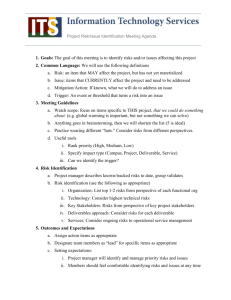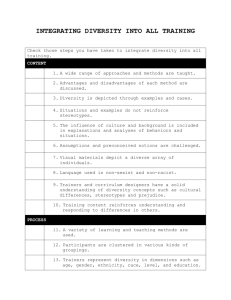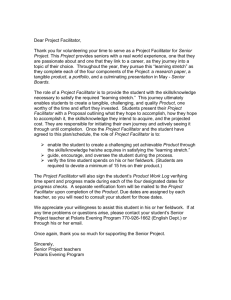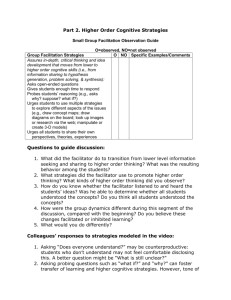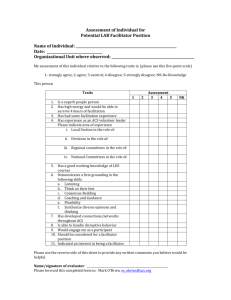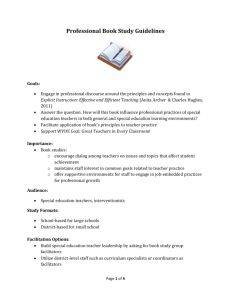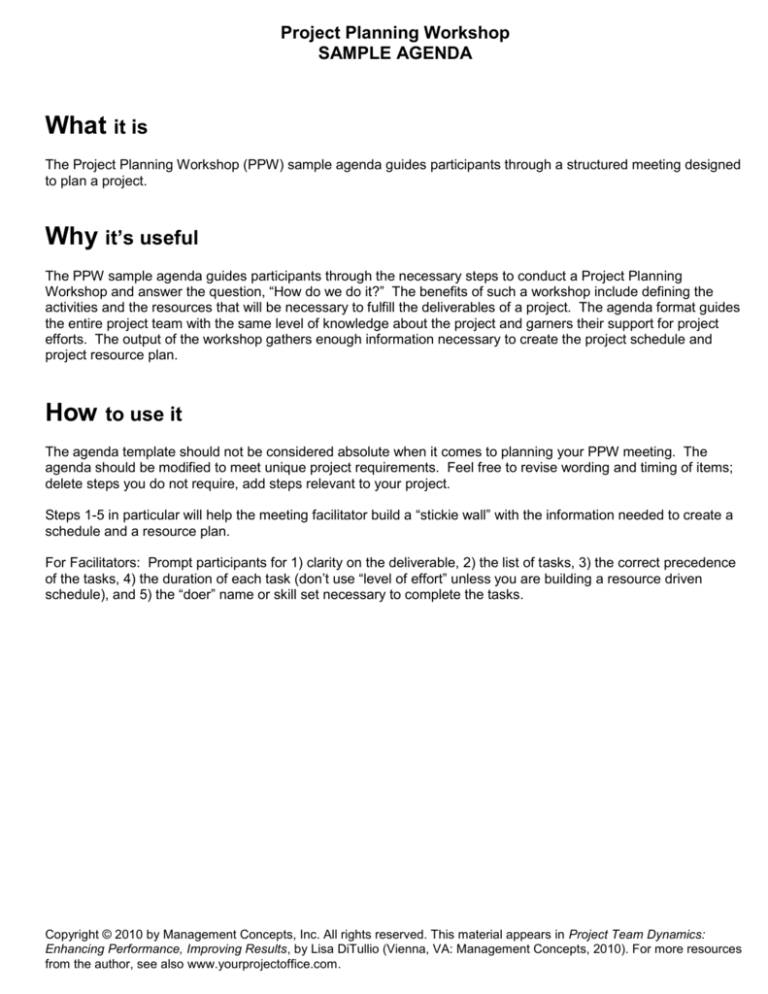
Project Planning Workshop
SAMPLE AGENDA
What it is
The Project Planning Workshop (PPW) sample agenda guides participants through a structured meeting designed
to plan a project.
Why it’s useful
The PPW sample agenda guides participants through the necessary steps to conduct a Project Planning
Workshop and answer the question, “How do we do it?” The benefits of such a workshop include defining the
activities and the resources that will be necessary to fulfill the deliverables of a project. The agenda format guides
the entire project team with the same level of knowledge about the project and garners their support for project
efforts. The output of the workshop gathers enough information necessary to create the project schedule and
project resource plan.
How
to use it
The agenda template should not be considered absolute when it comes to planning your PPW meeting. The
agenda should be modified to meet unique project requirements. Feel free to revise wording and timing of items;
delete steps you do not require, add steps relevant to your project.
Steps 1-5 in particular will help the meeting facilitator build a “stickie wall” with the information needed to create a
schedule and a resource plan.
For Facilitators: Prompt participants for 1) clarity on the deliverable, 2) the list of tasks, 3) the correct precedence
of the tasks, 4) the duration of each task (don’t use “level of effort” unless you are building a resource driven
schedule), and 5) the “doer” name or skill set necessary to complete the tasks.
Copyright © 2010 by Management Concepts, Inc. All rights reserved. This material appears in Project Team Dynamics:
Enhancing Performance, Improving Results, by Lisa DiTullio (Vienna, VA: Management Concepts, 2010). For more resources
from the author, see also www.yourprojectoffice.com.
Project Planning Workshop
SAMPLE AGENDA
Date, Time, Location, Conference Room
DURATION
AGENDA TOPIC
10 min
Introductions, workshop purpose/goals, review
agenda & ground rules
Throughout
Meeting
Project risks, assumptions, issues, & decisions
will be simultaneously captured
20 min
???
Project Purpose – Overview of Project
Opportunity Statement
Step 1: Review Deliverables
WHO
GOAL
Facilitator
Understand why we are here &
the workshop approach
RAID
Coordinator
Document & track important
elements of the project
Project
Manager
Set context for detail planning
Deliverable
Lead
Understand each deliverable
The next series of steps will need to be performed for each deliverable in the project
???
Step 2: Define activities / tasks to meet the
each deliverable
Facilitator
Identify work necessary for
each deliverable
???
Step 3: Sequence the activities / tasks, i.e.,
build network diagram
Facilitator
Determine when each task
must be performed in relation
to other tasks
???
Step 4: Estimate Activity / Task Duration
Facilitator
Determine the length of time
each task will take to perform
???
Step 5: Determine Personnel Resource Skills
Facilitator
Identify the skills necessary to
perform each task
Perform the steps below after all deliverables in the project have been through Steps 2-5
???
Step 6: Create Project Schedule
Project
Manager /
Facilitator
The data entry portion of this
step can be performed either
during the meeting or off-line
???
Step 7: Create Project Resource Plan
Project
Manager /
Facilitator
Identify and document the
personnel resource names or
skill sets required to perform
the project work
???
Step 8: Create Project Communications Plan
Project
Manager /
Facilitator
Identify and document the
project’s stakeholders, their
communication needs and the
management strategy
At the end of the session
15 min
10 min
Next Steps: Assign owners and dates to RAID
items as necessary
Coordinator
RAID
Meeting Evaluation
Facilitator
Next steps assigned
Workshop evaluation and
suggestions for improvement.
Copyright © 2010 by Management Concepts, Inc. All rights reserved. This material appears in Project Team Dynamics:
Enhancing Performance, Improving Results, by Lisa DiTullio (Vienna, VA: Management Concepts, 2010). For more resources
from the author, see also www.yourprojectoffice.com.



